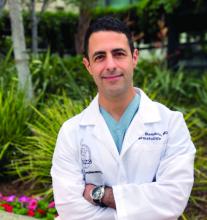Hurray! . Of course, I might be overplaying my excitement here: EMR updates are emotionally closest to a trip to the dentist – usually turn out fine, but hardly worth circling on the calendar.
Like a good dental cleaning however, these updates can be beneficial. Although uncomfortable, EMR redesigned menus and shortcuts can help – once you’re used to them. It typically doesn’t take long for most of us to learn the “improvements” so we’re at least not worse off. It is also a good time to update customized features. I try to use updates as an opportunity to refresh SmartPhrases, update order preferences, or rearrange my desktop to be more efficient.
Given how much my quality of life depends upon my EMR skills, it’s a shame I don’t make an effort to work on it more often. Really, why wait to make improvements just once a year? Why not get better every day?
This idea of continuous improvement is a popular meme in the self-improvement community right now. Instead of working on goals or adjusting your routine episodically, set an intention to get better, just a little, daily. Sometimes it’s described as the 1% model. The idea is that improving your habits or work flow by 1% each day will yield compound benefits with time. It is an aggregation of marginal gains with a surprising payout. For example, daily 1% improvements would mean you are 37 times more effective by the end of a year. Now, I don’t believe this mathematical model is necessarily accurate or even necessary. But the concept that a little development done daily yields lasting improvement seems to be true.
The corollary, that if you got a little worse each day, you’d be much worse off at the end of a year, is also reasonable. That’s how most health problems set in: continuous and insidious aggregation of bad choices. Why then not use that same principle for good instead?
The Japanese thought of this idea a generation ago. Applied to manufacturing, they called it Kaizen, “continuous improvement.” It was a managerial principle that reminded people to look for opportunities to improve, just a little, wherever they were in the process and to do so each day. It led to remarkable reductions in waste and became a key to their economic success.
Opportunities for relentless improvement abound in our work too. For example, when you write an order or work up a diagnosis, rather than just enter it, you might save it as a panel. When you find yourself using the same word or phrase, save it to your dictionary to pull it up with minimal keystrokes. When you research a difficult disease you’ve not seen lately, save the diagnostic questions as a template so you can pull it up in real time the next time it walks in. When you set up your procedure tray, place items so they can be picked up efficiently and moved out of the way quickly. No matter how good your setup or template is today, you can find a tiny improvement that would make it a little better tomorrow. And you’ll reap gains from that day forward.
I don’t expect this EMR update will have much impact on my quality of life. It will however be a reminder that like flossing, improvements are best done daily. You and your dentist will thank me someday.
Dr. Benabio is director of Healthcare Transformation and chief of dermatology at Kaiser Permanente San Diego. The opinions expressed in this column are his own and do not represent those of Kaiser Permanente. Dr. Benabio is @Dermdoc on Twitter. Write to him at dermnews@mdedge.com.



